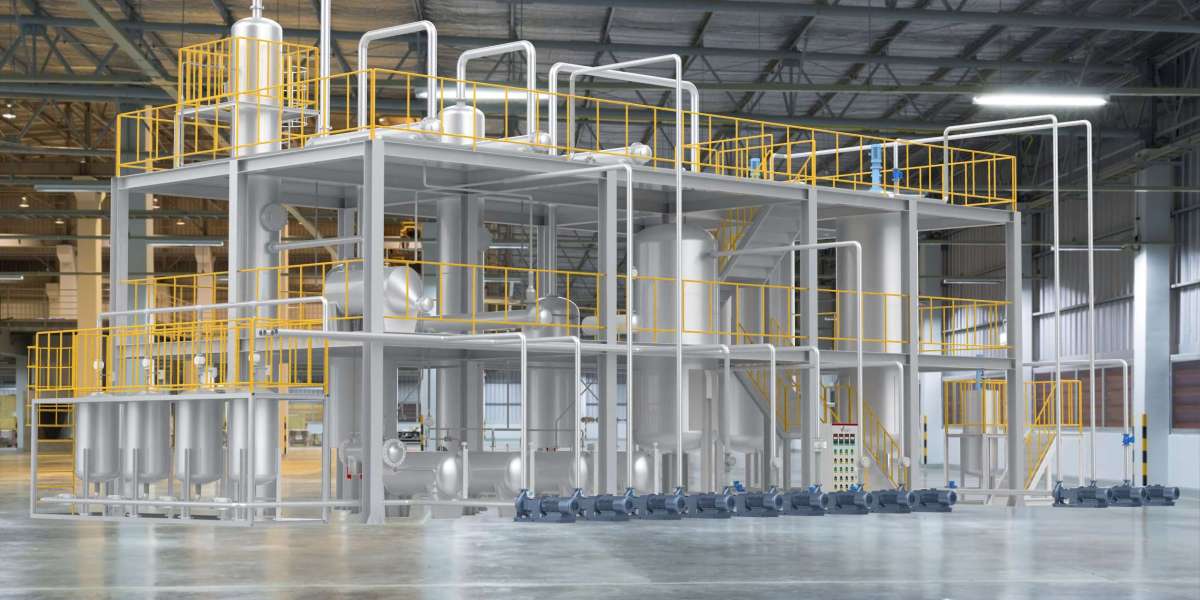1. Background of the use of distillation equipment for regenerating diesel from waste oil in refineries
Environmental protection needs
In today's society, environmental awareness is increasing, and the proper treatment of waste oil has become an important issue. If waste oil is discarded or improperly handled, it will cause serious pollution to soil, water bodies, etc. For example, harmful substances in waste oil may penetrate into the soil, affect soil fertility and vegetation growth, and may also flow into water bodies, endangering aquatic organisms.
Using distillation equipment to regenerate waste oil into diesel is an environmentally friendly treatment method. In this way, the emission of waste oil can be reduced and the harm to the environment can be reduced.
Trend of resource reuse
Oil resources are limited. With the continuous growth of global energy demand, the effective use of resources has become crucial. Waste oil contains a large number of reusable components, and regenerating it into diesel can improve the utilization rate of resources.
As the main place for oil processing, refineries have the corresponding technology and facility foundation. The use of distillation equipment for regenerating diesel from waste oil is in line with the development trend of resource reuse and helps refineries achieve sustainable development.
Policy support
Many countries and regions have introduced relevant policies to encourage enterprises to recycle waste oil. For example, some local governments give tax incentives or subsidies to enterprises that adopt waste oil recycling technology.
Policy support provides a good external environment for refineries to introduce waste oil recycling diesel distillation equipment and reduces the operating risks of enterprises.
2. Economic profit analysis of waste oil recycling diesel distillation equipment
Cost aspect
Raw material cost
The cost of obtaining waste oil is relatively low. Compared with crude oil mining and procurement, waste oil comes from a wide range of sources, including waste automobile engine oil, industrial waste oil, etc. These waste oils can usually be purchased at a lower price, reducing the cost of raw materials.
Equipment and operating costs
Although the initial investment in distillation equipment requires a certain amount of funds, with the development of technology, the cost of equipment has gradually decreased. Moreover, the operating cost of distillation equipment is relatively controllable, mainly including energy consumption (such as electricity or fuel required for heating), equipment maintenance and operator wages.
Since the process of waste oil recycling diesel is relatively mature, the failure rate of equipment is low, and the maintenance cost will not be too high. At the same time, operators can operate proficiently after a certain amount of training, and labor costs can also be effectively controlled.
Income aspect
Product sales
There is a certain demand for recycled diesel in the market. It can be used in some areas where diesel quality requirements are not particularly high, such as some industrial equipment, agricultural machinery, etc. Although its price may be slightly lower than high-quality diesel, it can still make considerable profits due to its low cost.
As the quality of waste oil recycled diesel continues to improve, its market acceptance is also increasing, and the sales scope is expected to be further expanded, thereby increasing sales revenue.
Additional benefits
Refineries may gain additional benefits by using distillation equipment for waste oil recycled diesel. For example, by reducing waste oil emissions, fines for violating environmental regulations can be avoided. At the same time, the company's positive performance in environmental protection helps to enhance its social image, which may attract more partners and customers and indirectly increase economic benefits.
3. Profit calculation example
Assuming that a refinery with a daily processing capacity of 10 tons has a daily waste oil acquisition cost of (2000*10)20,000 US dollars, the total operating cost of the distillation equipment (including equipment cost, energy, maintenance and labor) is 150,000 US dollars, and the daily finished diesel price is (8*1000*0.9)7200 US dollars, then the monthly renewable diesel can be produced worth 216,000 US dollars.
The equipment cost is fixed, so from the perspective of economic benefits, it is very profitable!
There is a company called - Chongqing Vbolt Machinery Manufacturing Co. Ltd, which was established in 2009 and has a history of 15 years.
The company's main products include diesel distillation equipment, base oil distillation equipment, solvent extraction equipment and various waste oil purification equipment. The factory has a production area of more than 4,000 square meters, and all equipment is strictly controlled from drawing design to delivery. All machines have passed ISO9001, ISO14001 (international quality and environmental management system certification), CE certification and 13 technical patents. Coupled with a strong technical team, production team and service team. So far, it has served more than 300 customers around the world, providing them with overall waste oil regeneration solutions and technical support.
Therefore, VBOLT has been highly praised by Southeast Asia, Africa, South America, Europe and other countries in the waste oil recycling industry for its advantages of low investment cost, fast return on investment and energy saving!
If you are interested and want to know more, please contact the friendly, sincere and responsible Dong below!
WhatsApp: +86 19122820463
E-mail: [email protected]







